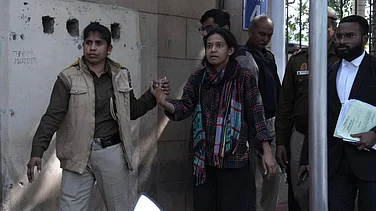"For those of us who have grown up under the thumb of this terror, the Oting massacre is an awakening of the generationalised trauma that we have internalised. And a realisation of how our personal lives are embodied in the political, and for the new generation, this is the inheritance of hauntings..." writes Beni Sumer Yanthan in Inheritance of Sufferings for Outlook, in 2022.
Reading Yanthan takes us back to the horror of December 4, when the army killed 13 civilians near Oting in Nagaland's Mon district. And it has been two years since then but there’s no justice for them. Instead, the military troops responsible for the grave error that led to the killings have been spared under the Armed Forces Special Powers Act (AFSPA), as bereaved families continue to grapple with the aftermath.
On December 4, 2021, members of the 21 Para Special Forces army unit opened fire on six coal miners mistaking them for insurgents in Mon district. The incident led to clashes between local villagers and the military, resulting in the additional loss of seven civilians and one soldier. The following day, responding to an attack on their camp by protesting villagers, soldiers took the life of another person.
The Army expressed their regret for the killings due to mistaken identity and ordered an inquiry. A special investigation team (SIT), headed by the Nagaland police chief, probed the incident and on March 24, 2022, sought the Union Defence Ministry's sanction to prosecute the army men.
The police said that “indiscriminate and disproportionate firing” led to the immediate death of six civilians and caused grievous injuries to two more.
Justice denied
On April 14, 2023, the Centre refused to prosecute the 30 army personnel involved in the botched operation, aligning with a recurring trend of impunity facilitated by the AFSPA.
The AFSPA, applicable to army units deployed against insurgent groups, grants extensive powers to employ indiscriminate force while ensuring effective immunity for soldiers from prosecution.
There have been repeated calls to repeal the Act, with critics arguing that it shields military troops from accountability and grants them the freedom to commit human rights abuses
Suffering continues
Even though two years have passed since the incident, the wounds from that day run deep, with many unable to forget the horrors of that tragic event
“We have moved on in some ways, but the pain and feeling of suffering are still there. In Nagaland, we know to forgive, but we can’t forget this tragedy,” a community leader of Oting, Kheatwang Konyak, told the media last year.
The residents of Oting in Mon district where the killings took place expressed their intention to install a monolith in remembrance of the 14 individuals on the first anniversary of the tragic incident.






















